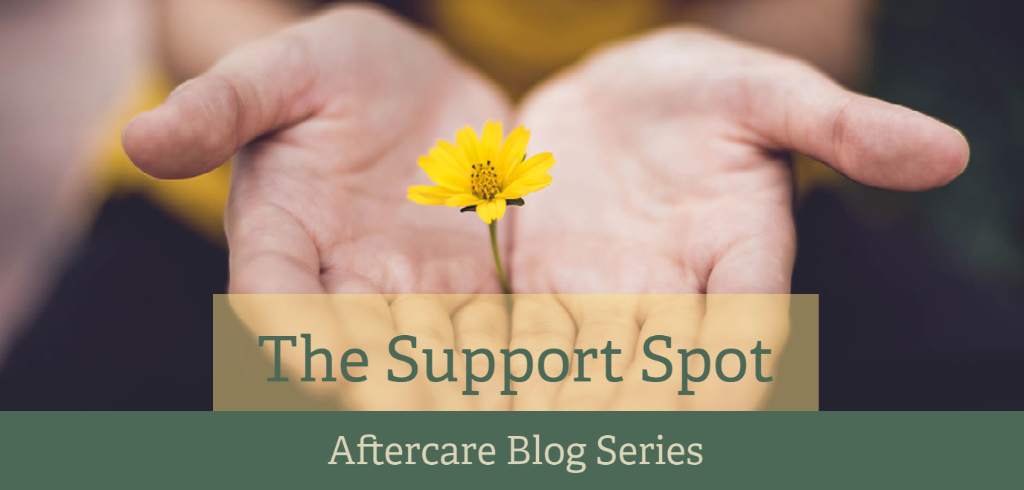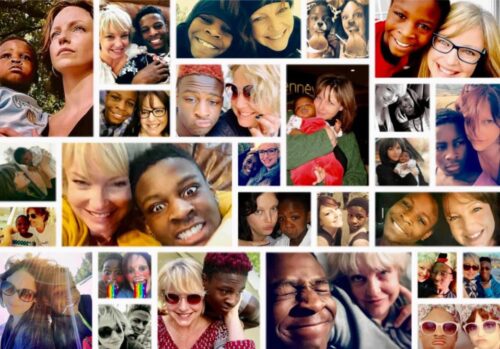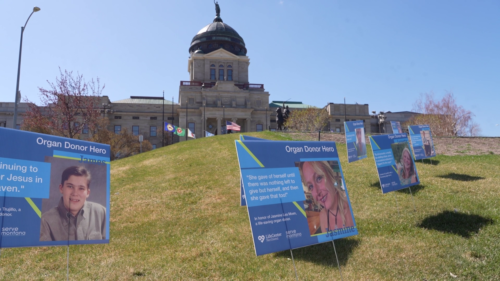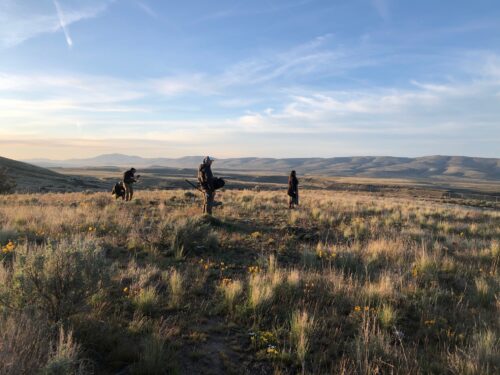
“A long-overdue note.”
At the end of 2020, the Donor Family Aftercare Team received an email from the mother of an organ and tissue donor with the subject of “A long-overdue note.” Included with this email was a beautifully written 23-page reflection on the death of her daughter, including how she processed the days, weeks, months, and now the year following her life-changing experience. The intimate glimpse of the grief process that this mother actively navigates is truly a gift. Her words are meaningful and rich, and we want to share some of her thoughts, insight and courage with you, fellow donor families.
When members of the LifeCenter team first meet with a family at the hospital, on the heels of receiving the worst news of their life, we arrive with no expectations. We enter that hospital room with compassion, sensitivity, and hope that despite the horrific tragedy that is unfolding, there could be the opportunity to save the lives of others through organ and tissue donation. We do not expect the families on the other side of the hospital room doors to teach us about grief.
Families come in all shapes and sizes. Some are loud, some are quiet. Some laugh to cope with the unimaginable, others sob because of palpable pain and many do both. Some have the most amazing stories to share with us, while others prefer to say very little because they simply do not know what to say. Sometimes there is one family member present for support and love, other times the hospital room and hallways are overflowing with family and friends. The situations that cause the unimaginable can be out of the blue or it can be overwhelmingly expected and inevitable. Just as every family is unique, each situation that occurs at the hospital is unique as well. Additionally, the added layer of organ donation is unique, as less than 1% of those who die in a hospital can be organ donors. And most importantly, the process of grief and grieving is unique between individuals and within families.
To quote the donor mother who graciously shared her thoughts with us,
“Grief is a knotty, complex, apparently unending state of being. It’s filled with emotions that may be very new. It dredges up fears, losses and pain that may be very old. And no one, however much they love you, can enter the world of your grief. You’re alone there. Aloneness is a strange blessing. That very solitude gives you freedom to decide who you will be, what you will carry away from the experience that will serve others, how you will take and mold great sorrow into something worthwhile and even beautiful.”
I’m fortunate to be a part of the LifeCenter Northwest Aftercare team, and I continue to be inspired by donor family members. What we hear most often is that donation is the bright spot in an otherwise very dark place. A donor family member once told me that she felt lucky that she had a ‘good’ death experience because of donation. And that her feeling of a ‘good’ death was further validated when she attended a support group where she was the only person whose loved one was an organ donor. What struck me as meaningful is that the individuality of our grieving process can be further impacted by the uniqueness of organ donation, which leaves many unknowing how to process or sit with their grief amidst the joy that comes with saving another’s life.
Another commonly shared sentiment by many donor families is that donation has provided a sense of meaning to an otherwise devastating death. The knowledge that their loved one helped save the lives of another, or many others, is the most selfless act that one can give, and there is comfort in this tremendous generosity. But despite all of this, grief does not dissipate, rather it may be experienced differently and with a sense of compassion for one’s self.
To share another passage from the mother of a donor, she writes,
“Years ago, Victor Frankl wrote a book called ‘Man’s Search for Meaning’ motivated largely by his experience in a concentration camp, the loss of his wife and family and his daily, unimaginable suffering. He suggests that it’s possible to create meaning in every situation — even the most intolerable. We can’t control circumstances. We can’t control our emotions and reactions. We can only control our story about what’s happening and when we do, we’re empowered. We control our inner relationship to what is happening around us. We make meaning for the situation, not necessarily for all of life — just that time and place.”
The ability to recognize and speak to the meaning that might be bestowed because of a loved one’s death may not come immediately, rather it could take months, even years to rise to the surface. What I can say, even though it may be difficult to accept or even feel, is that donation can play a profound role in one’s grieving process in a positive way.
To close, here is a final passage from the mother of a donor,
“It’s clear that this has been life-changing. I will forever be straddling the time ’Before‘ and ‘After.’ But I desperately want to be more than what I was before, not less. Grief can be erosive. It can rob people of their joy or hope or compassion. It can leave them bitter, regretful, disillusioned. It can also be the threshold of a new phase. It can add to the depth of your understanding; it can help you make peace with the not knowing; it can give you a fresh appreciation for your emotions, your courage, your steadfastness. It can make you aware of the universality of suffering and your deep connection with all living and dying things.”
We continue to be so grateful to you, donor families, for all that you have shared and taught us about love, compassion and generosity. And while the sentiment regarding being alone in the world of your own grief is accurate, you are not alone on this journey. Please know that our Donor Family Aftercare team remains available to provide you with support. We would love to hear from you about your grieving process and how donation has impacted it.
“It’s an honor to be in grief. It’s an honor to feel that much,
to have loved that much.”
-Elizabeth Gilbert
Visit our Donor Family Aftercare Page | Contact Us
Ashlei Lind is the Donor Family Aftercare Manager joining LifeCenter Northwest in June 2015. Lind and her team provide grief and bereavement support, as well as honoring opportunities, to organ and tissue donor families throughout our region. A graduate of the University of Washington, Lind is a licensed clinical social worker, with an emphasis on grief and bereavement support for children, youth and families. Lind has a strong passion for donation and transplantation as a result of the daily demonstrations of generosity, selflessness and compassion from donors and their families.







